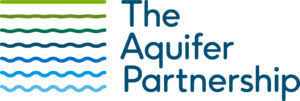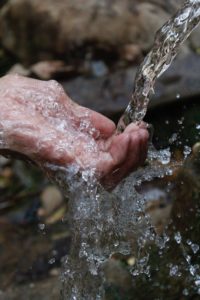Six simple steps to protect the water of the South Downs National Park
March 20, 2019
The water of the South Downs is an incredibly valuable natural asset for our region. Not only does the chalk provide filtered drinking water to over a million people across our towns and cities, but the rivers provide a home to important wildlife species and could support many more.
Water quality in the South Downs is showing signs of improvement.
We’ve seen the return of otters to some parts of the National Park and, while there is a healthy population of eels (a favourite food source for otters), there is still some way to go on seeing a full recovery for both of these species.
 We’ve also been working with partners to address the threat to our groundwater. The Aquifer Partnership is bringing together key agencies and landowners to enhance the water quality in the Brighton Chalk block, to ensure it can remain a sustainable resource for public water supply.
We’ve also been working with partners to address the threat to our groundwater. The Aquifer Partnership is bringing together key agencies and landowners to enhance the water quality in the Brighton Chalk block, to ensure it can remain a sustainable resource for public water supply.
To mark World Water Day we’re sharing our top six tips of what we can do as individuals to help protect and enhance the water of the South Downs.
Our top tips to protect our water
1. Buy less plastic, and if you must buy it – recycle or bin it!
More disposable packaging means more plastic ends up in water courses. Many birds are badly affected by plastic waste as it can be mistaken for nest-building material or food. Litter can be broken down into tiny particles called microplastics, which cannot degrade and can remain in our food chain indefinitely.
2. Save water
This is particularly important during the summer months as lower rainfall and hot weather place more pressure on the water reserves in the South Downs.
Simple measures such as turning off the tap while brushing your teeth, using a bucket of water to wash your car and saving water in a water butt to water your garden will really help.
3. Remember the toilet is not a bin!
Avoid putting sanitary products, wet wipes and dental floss down the toilet. The marine and river systems are closely connected, and water quality can improve by taking extra care.

4. Keep out oils, fat, or grease from the sink
Avoid pouring cooking oil, fat or grease down the kitchen sink. Instead, keep a jar that collects all the fats, grease or oil then discard with your general waste.
5. Reduce chemical use in your garden
Excess fertiliser and pesticides run through the soil and can end up in our groundwater, rivers, streams and wetlands. Consider organic methods for pest, weed and disease control.
6. Use your car less
We all know cars cause air pollution, but most of us are unaware that road run-off is the third highest cause of water pollution. Some cars leak oil and petrol and tyres and break pads wear down leaving heavy metals and microplastics on the road. This pollution washes off the road when it rains, down drains and often leads to groundwater, or our rivers and then seas.
